Doubts over murder evidence against Kent man - MP
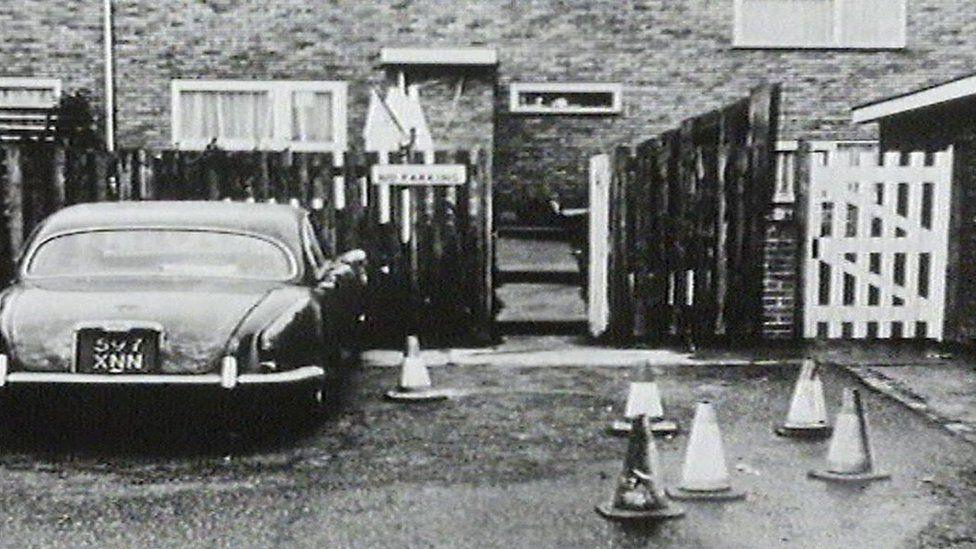
Terry Clarke was killed after he returned home from a bar
- Published
A murder conviction from 1972 against a Kent man should be re-examined as some of the evidence is unsafe, his MP has said.
Justice Minister Laura Farris said she would refer the case of Paul Cleeland to Lord Chancellor Alex Chalk after Folkestone and Hythe MP Damian Collins raised it in a Westminster debate, external, .
Cleeland, 81, denied murdering Terry Clarke in Hertfordshire in a shooting in 1972 but served 26 years in jail.
Mr Collins said more evidence had emerged since a failed appeal in 2002 and that the Criminal Cases Review Commission (CCRC) had "relied on statements that are just not true". The CCRC said there had been thorough reviews.
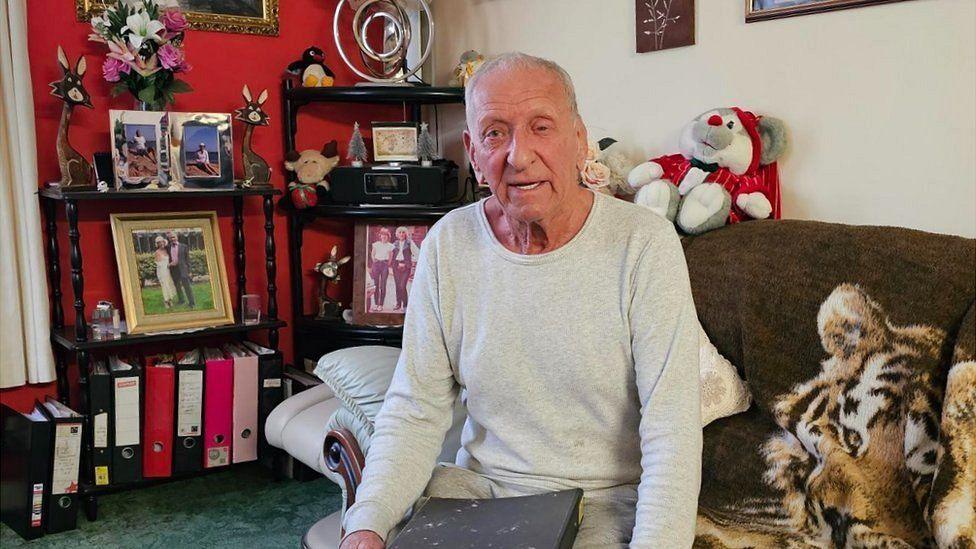
Paul Cleeland has been fighting to clear his name for decades
Suspected gangland boss Mr Clarke, who was a friend of Mr Cleeland, was shot in Stevenage after returning home from a bar.
Mr Cleeland, who lives in Folkestone, maintained his innocence, but legal challenges failed.
Several applications to the CCRC were refused along with a bid for a judicial review.
Mr Cleeland, who attended the Westminster debate, said: "It's not me saying my conviction is unsafe."
He said evidence had come from independent expert Dudley Gibbs and arguments by his barrister Edward Fitzgerald QC.
"Take what they say and on those grounds, I can be relisted," he said.
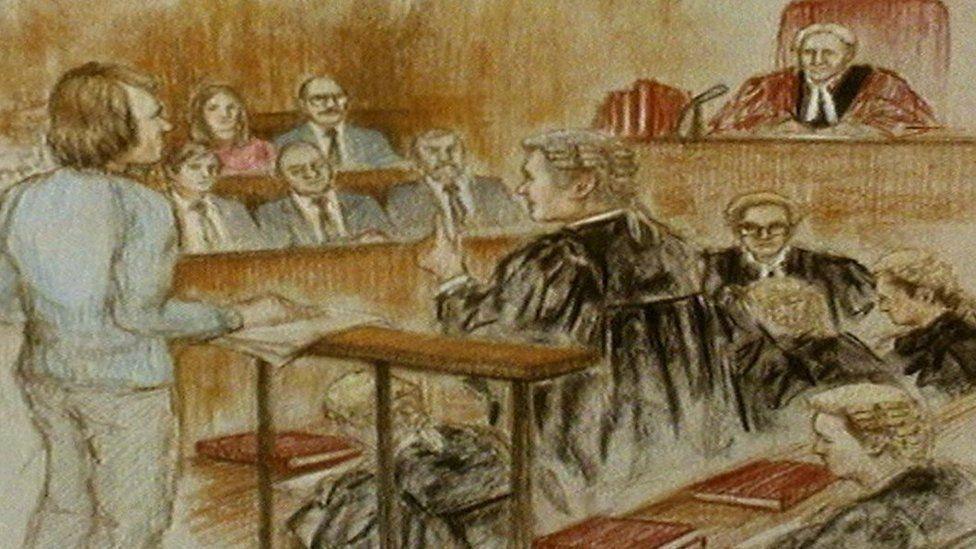
Paul Cleeland represented himself in 1973
Mr Collins said the case was similar to that of Barry George, who was found not guilty of murdering Jill Dando at a retrial following doubts over reliability of gunshot residue evidence.
"A lot of the evidence that was used in court, presented in court, wouldn't be admissible today," the MP said.
Mr Collins said evidence on the firearm in Mr Cleeland's case was disputed and tests that could be done now showed lead on his clothing could have been environmental, and not from a firearm.
He said a Guy & Moncrieff shotgun had been said by the Crown to be the murder weapon, "although there has never been any forensic evidence that links the gun either to the murder or to Mr Cleeland himself", but two other guns were found in weir near Harlow, in Essex.
Mr Collins said: "Mr Cleeland at the time was a painter and decorator and worked with lead-based paints and himself had been to a fireworks party on the evening that the murder took place and could have picked up lead residue from there."
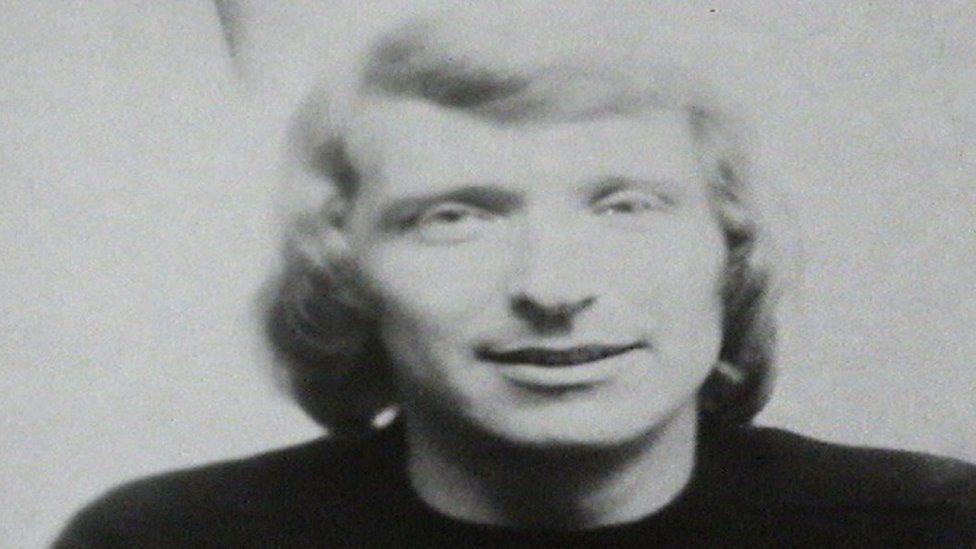
Paul Cleeland was 30 when he was jailed
The MP compared the case to other wrongful convictions in the 1970s such as the Birmingham Six and Guildford Four.
He said: "The case of Mr Cleeland is regarded by many as a miscarriage of justice – one of a series of miscarriages of justices which we are familiar with, certainly from the 1970s, but one that has remained outstanding."
Mr Collins added: "Mr Cleeland is now in the position of having been accused of being a vexatious litigant simply because he’s seeking to correct the record."
The MP asked for mistakes to be acknowledged and the record to be put right and for "fresh consideration be given by the CCRC to Mr Cleeland’s case".
He also said there was an ongoing government review into the CCRC and he would like Mr Cleeland's case to be included.
Ms Farris said: "Firstly, I will raise this with the Lord Chancellor."
She added: "We can perhaps raise this with the CCRC on his (Mr Collins's) behalf."
A CCRC spokesman said: "Mr Cleeland has made a number of applications to the CCRC, which have been subject to thorough reviews.
“One of those applications resulted in the CCRC referring Mr Cleeland’s conviction to the Court of Appeal, which upheld it.
“Other reviews concluded that there was no real possibility his conviction would be quashed if it were to be referred to the Court of Appeal.
“Mr Cleeland sought judicial review of the decisions not to refer and was unsuccessful.”
The CCRC highlighted a 2022 judgement, external which said Mr Cleeland had made repeated applications "to the point of now being vexatious" and had challenged his conviction about 12 times.
Follow BBC South East on Facebook, external, on X, external, and on Instagram, external. Send your story ideas to southeasttoday@bbc.co.uk, external or WhatsApp us on 08081 002250.
Related topics
- Published2 March 2021
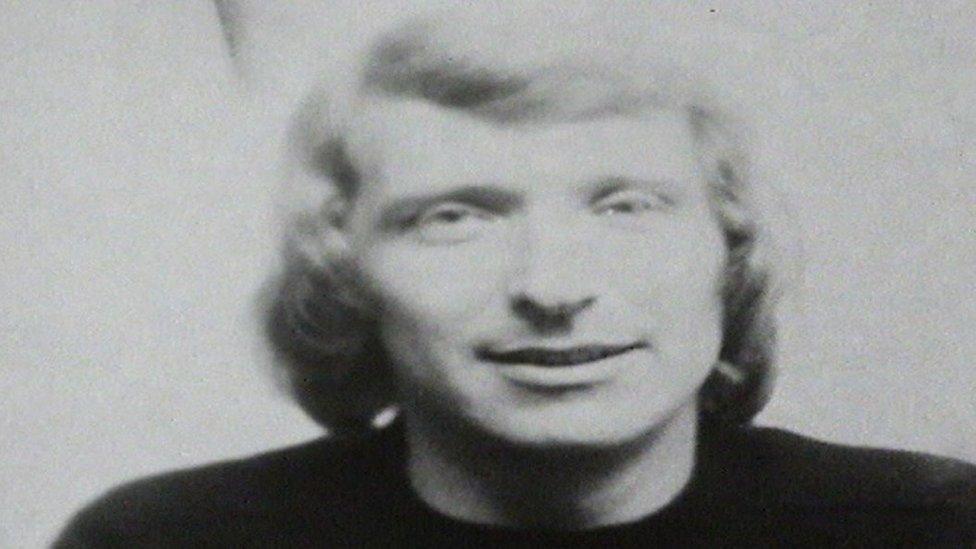
- Published7 December 2020
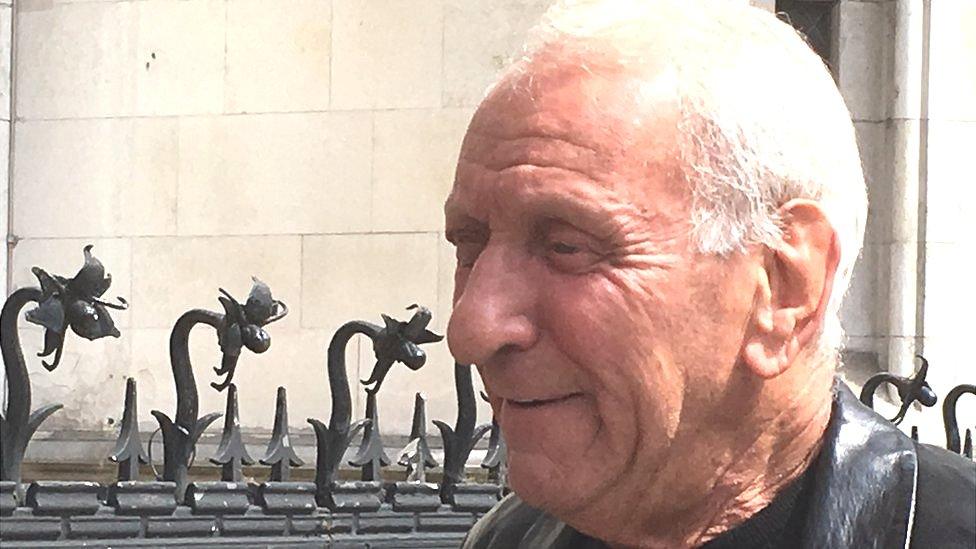
- Published11 March 2019
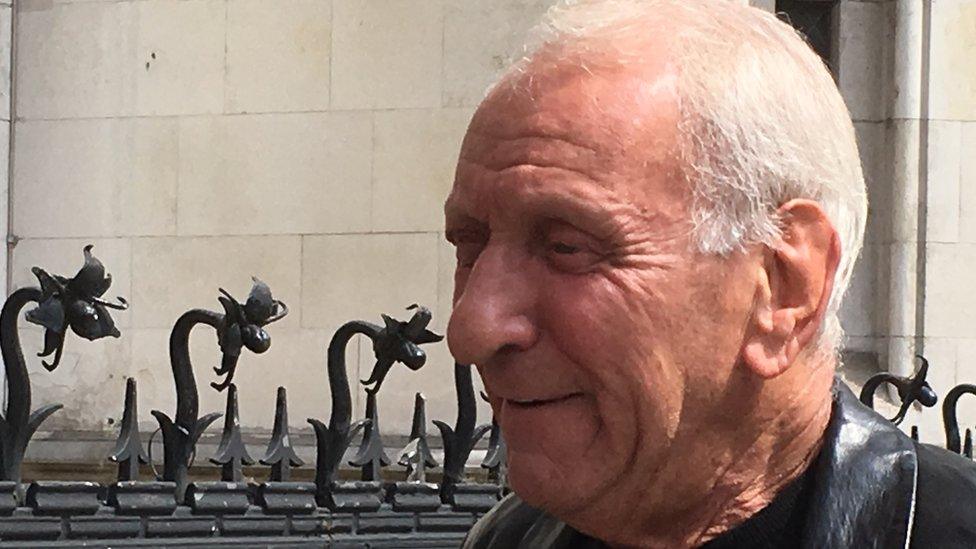
- Published12 July 2018
